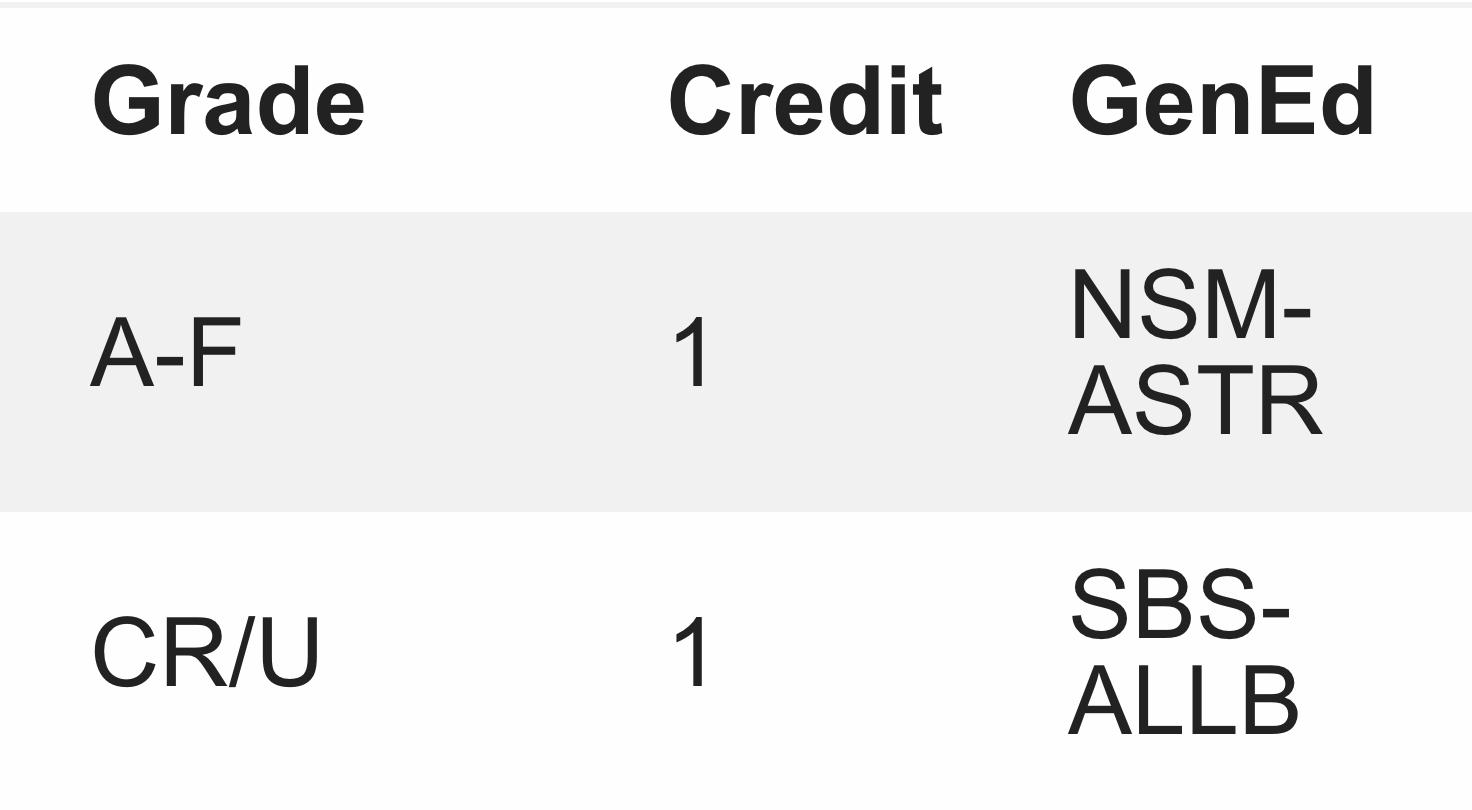 Undergraduates will be able to switch to a Credit/Unsatisfactory (CR/U) grading mode for each of this semester’s courses, according to an all-campus email sent by Interim Provost and Senior Vice President for Academic Affairs Rob Rosenthal. Rosenthal also wrote that all departments have agreed to accept the CR/U grading mode for classes counting toward their majors, minors, and certificates, though students should consult with their departments about thesis tutorials and graduate courses.
Undergraduates will be able to switch to a Credit/Unsatisfactory (CR/U) grading mode for each of this semester’s courses, according to an all-campus email sent by Interim Provost and Senior Vice President for Academic Affairs Rob Rosenthal. Rosenthal also wrote that all departments have agreed to accept the CR/U grading mode for classes counting toward their majors, minors, and certificates, though students should consult with their departments about thesis tutorials and graduate courses.
Students will have until May 6, the last teaching day of the semester, to inform each of their professors if they are switching grading modes, according to the email. For students who select the CR/U option, professors will not have to write evaluations unless they are giving a student a grade of “Unsatisfactory.”
“Overall there was just a sense that we wanted to take the pressure off both faculty and students, because this is really unprecedented,” Associate Provost Sheryl Culotta said in an interview with The Argus. “We didn’t want faculty to feel uncomfortable knowing necessarily how to best grade work that is discussion and things that are coming in a very different format from what they’re used to, and we didn’t want students to be worrying about their GPA.”
This decision comes after the announcement on Wednesday, March 11 that all of Wesleyan’s in-person courses would be suspended through the end of the semester and transition to distance learning models due to the spread of the novel coronavirus disease, COVID-19.
“It’s clear that some classes will be taught very differently than had been anticipated,” Rosenthal added in an interview with The Argus. “In some ways, it’s not the class they signed up for. So I know students were very, very nervous about all this, and it just seemed to make sense to allow them this time to switch to a credit/non-credit if they wanted to.”
The ability to take a thesis tutorial CR/U—and what effect that change may have—is a department-by-department decision, Rosenthal said.
“For thesis questions, we just want to make sure that the theses students are checking in with their departments, because a lot of theses students may want to know…can I still be given honors?” Rosenthal said. “And that’s a department decision…. We just didn’t see a one-size-fits-all solution.”
Similarly, Rosenthal explained, students should check with each department about if their graduate courses can be taken CR/U.
“All the departments agreed that they would waive this requirement for undergraduate classes,” Rosenthal said. “Some did not want to waive it for graduate classes, so rather than have a problem with that, we just agreed, ‘Okay, so it’s for undergraduate, and if you’re in a graduate class, you should check in with that department and see what their regulations are.’”
If a student takes an incomplete in a course, they will have until the first day of the fall semester to turn in their work rather than 30 days from the end of the semester, the typical deadline.
Faculty have been told to update students over email on the details of how each course will proceed before Friday, March 20. Rosenthal added that faculty may make changes to the syllabus about how the final grade of the course will be calculated and that all such changes should also be announced by the March 20.
Dean of the Natural Sciences and Mathematics Joe Knee noted that a concern for many students will be graduate school applications.
“We’re obviously giving this as an option to students to choose one or the other, and so students are going to have a certain amount of anxiety with trying to make that choice, and I think the faculty and certainly the advisors, which will still be available to students, can help consult on that,” Knee said. “We’re kind of assuming long term that, after this subsides, that medical schools and other professional schools and so forth will kind of understand what happened this semester and take things with a grain of salt as to what the grades actually mean for that particular semester.”
Middlebury College is also allowing students to take their courses pass/fail, as of Monday night, and students at many other schools are circulating petitions that ask their administrations to allow them to do so. No other NESCAC schools have yet publicly announced a change to their regular grading mode policy at the time of this article’s publication.
“It’s really a difficult situation,” Rosenthal said. “It’s like wartime, I keep saying to people. It’s not: ‘Do you want to do it or not?’ It’s: ‘We have to do it, and let’s figure out how we’re going to best do it.’”
Update: While all departments will be accepting CR/U courses this semester, whether those courses will be counted toward the department-specific CR/U caps will be on up to each department’s discretion. Students should contact department chairs for more information.
We are continuing to seek out answers about how Wesleyan will be operating for the rest of the semester. Please email us at argus@wesleyan.edu with your questions, concerns, and tips, and we’ll try to get information out as soon as we can.
Expect further updates at wesleyanargus.com and on The Argus’ Twitter account, @wesleyanargus.
Sara McCrea can be reached at smccrea@wesleyan.edu, or on Twitter @sara_mccrea.
Hannah Reale can be reached at hreale@wesleyan.edu, or on Twitter @hannahereale.
Comments are closed